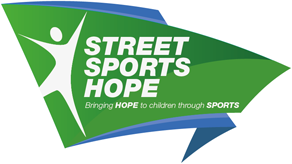We have developed the stages needed to identify those children and young people most in need of help. We aim to ensure more children gain and maintain an education, and then to keep them there. Our process goes through the following steps:
- Identification
- Relationship Building
- Family Assessment
- Aid Intervention
- Sustainable Solutions
Identification
Our identification process is one that is well thought through, from where we operate, to who we support. Our experienced Sierra Leonean team travels around the country, working closely with community and religious leaders, as well as youth groups, to identify children and young people that we believe will benefit from our sports programme, through to those who are in urgent need of aid – be it food, clothing or financial.
Street Identification
Our trained street/social workers travel the streets of the poorest communities in the poorest parts of Sierra Leone, identifying children and young people who should be receiving an education, though instead are on the streets, often working in appalling conditions, trying to support their families during school hours.
Once identified, they are approached cautiously with the aim of establishing who the child’s parent or caregiver is, so we can then contact them to explain how we can help.
Our street workers regularly see street children at lorry parks, public markets and entertainment centres when they should be at school. Children in these locations are normally working as traders, often selling home-prepared food prepared by their caregivers. This work can often last all day, leaving the child no time to go to school or the opportunity to play, something we in the western world take for granted as a right for every child.
Many of the children we meet live permanently in the parks and markets, working as porters during the day and sleeping on benches and table tops at night. They are homeless and scared, at risk of abuse and are often in fear of returning to their home.
Community Identification
When we arrive in a community, we initially make our presence known to the local Ministry of Social Welfare Officer, confirming our purpose and how we are looking to help. We approach the major stakeholders in the community – religious and community leaders – asking for their help with our identification process, as they know the most affected children and families, witnessing their every-day struggles.
95% of our charity staff and volunteers come from within the communities that we work in. In doing so we can ensure we have social workers and sports coaches who know and see the children on a daily basis and who are in a better position to build a relationship with the children and their families.
Relationship Building
Our child/family social workers and sports coaches work closely with the children and their families, establishing a relationship through sports and regular home visits.
We create a sporting/recreational child-friendly environment as a platform for children to enjoy sports and make friends, as well as giving them an opportunity to exercise their rights to an education and time to play.
Street Sports Hope will also offer after school homework clubs for children, so they can get the support and extra tuition they need.
We want children to use the Street Sports Hope sporting environment as a platform to get help with their daily struggles and to create a mentoring relationship with our sports coaches and social workers, so they can have a trusted adult to talk to and share their problems in confidence.
Family Assessment
For all the children in one of our sports programmes, we carry out a family assessment, where our social workers determine what aid intervention is most urgently required, followed up by a longer term sustainability solution, aimed at providing the family/carer with the most appropriate assistance for the development of the child/children.
Following a home visit from our social workers, both child and caregiver(s) will be interviewed and our trained social workers will assess the following:
- Accommodation conditions
- Source of income
- Number of meals per day for the child
- School enrolment status of the child
Aid Intervention
Once relationships are established between our staff and the families we work with, we then sit down with caregiver of the child on one of our programmes and decides what aid is most needed for that child. Typically, the aid we offer will be:
- Educational
- Financial
- Clothing and health
- Sportswear and equipment
- Emergency food
Sustainability
It is our aim that once we have provided the initial support to the child/family, we then develop a sustainable solution that helps to ensure the educational and personal development needs of the child and family. Types of sustainable solution typically include:
- Small business grants
- Agricultural seed support
- Obtaining a driving licence support (young adults between the age of 18 and 24)
